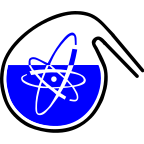Speaker
Description
The Euratom Treaty provides the legal basis for “promoting and facilitating nuclear research in the Member States and for complementing it by carrying out a Community research and training programme” [1]. The Treaty also established the Joint Research Centre (JRC), which is part of the European Commission. The EURATOM Research and Training (R&T) Programme defines the objectives and priorities along which research is being promoted and supported. The research activities are organized in multi annual framework programs (the present cycle covers 2021-2025). Collaborative projects (Indirect Actions) are co-financed by the European Commission Directorate General responsible for EU policy on Research, Science and Innovation (DG RTD); Direct Action research programs and contributions are implemented by the JRC using its own research infrastructure in the directorate for Nuclear Safety and Security. Safe management and disposal of spent nuclear fuel and high level waste constitute a relevant part of the R&T Programme. Moreover, Art. 8 of the Waste Directive [2] requires Member States to make arrangements for research and development activities to cover the needs of the national programme for spent fuel and radioactive waste management. The definition and distribution of R&D efforts is aligned to the strategic research agendas of relevant joint initiatives and platforms, such as the Implementing Geological Disposal Technology Platform, and the EURAD and PREDIS Joint Programmes.
This presentation will provide a schematic description of some relevant scientific highlights from past research and an overview of needs / requirements for the research on nuclear waste in the coming years in Europe. In particular, it will present an overview of JRC research activities on safety of spent fuel and high level radioactive waste. Spent fuel management studies cover several stages: cooling in the spent fuel pool; handling, transport, interim storage (with particular emphasis on extended storage); retrieval and handling after storage; disposal in a deep geological repository, including long term safety aspects thereafter. The challenges and the opportunities for collaboration to perform experimental work on "real" spent fuel and waste forms using JRC's research infrastructure, which include hot cells and other shielded facilities, will be also mentioned.
[1] Council of the European Union, General Secretariat of the Council, The Euratom Treaty: consolidated version.
[2] COUNCIL DIRECTIVE 2011/70/EURATOM establishing a Community framework for the responsible and safe management of spent fuel and radioactive waste.

